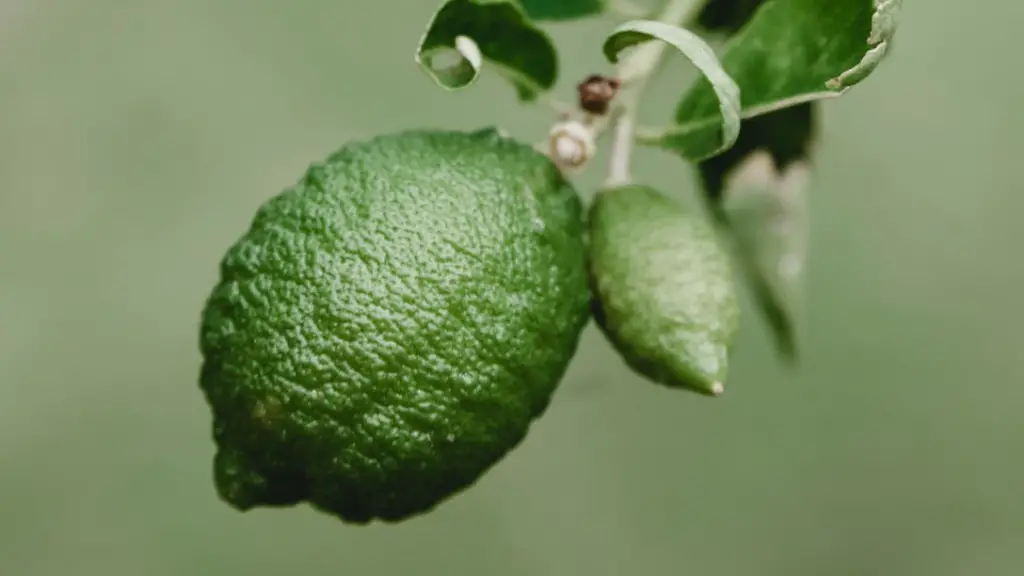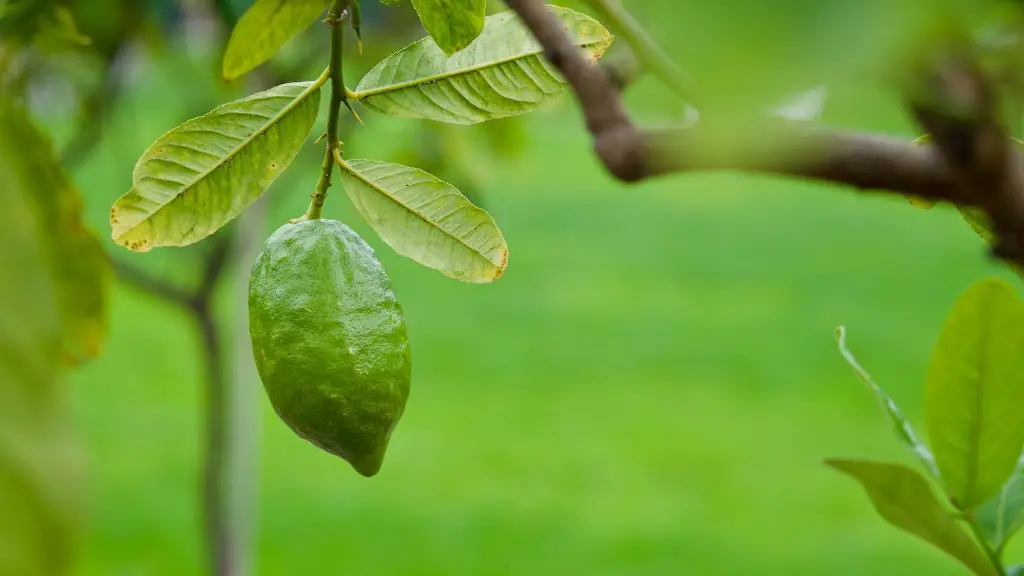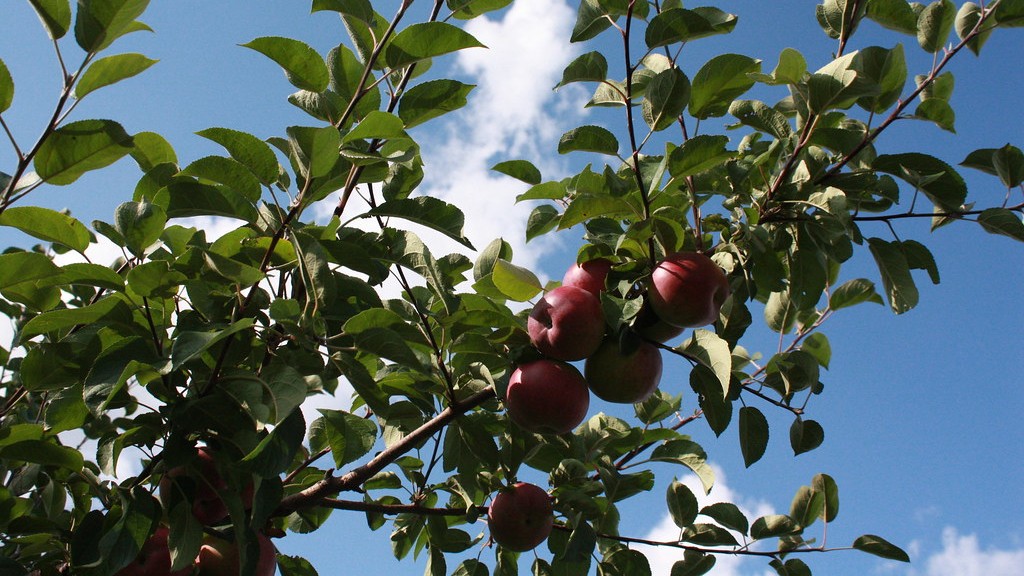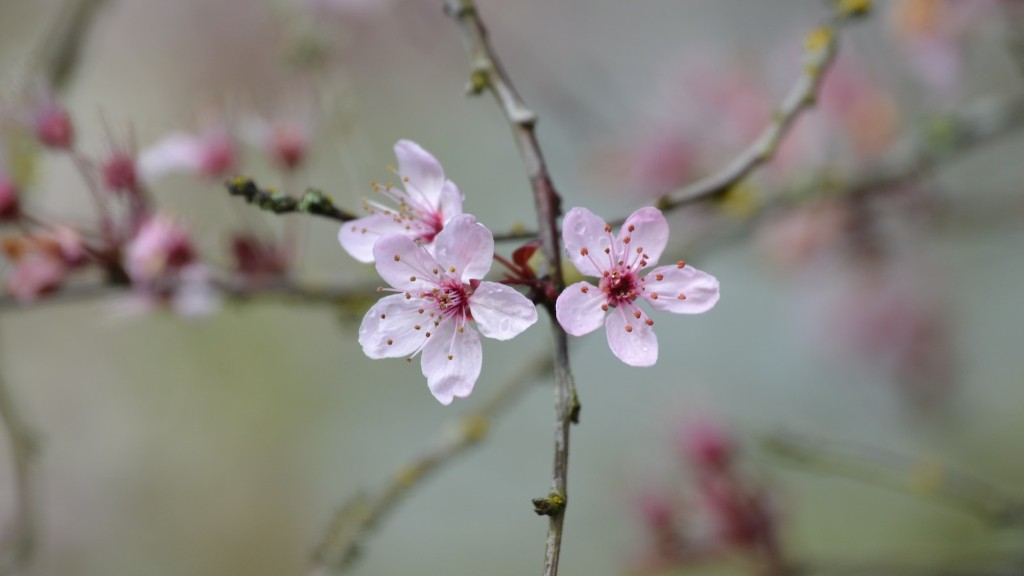Dwarf lemon trees come in all shapes and sizes, but one thing is for sure: these trees are hardy and easy to care for. Despite their small size, they can grow to a considerable height and produce abundant fruit. In this article, we will discuss how big do dwarf lemon trees grow, what conditions are favorable for this species, and how to properly care for them.
When it comes to size, they can grow up to 10 or 12 feet in height and usually spread 3 to 6 feet across. Its growth rate is medium, so that you can expect it to grow 4 to 6 feet in 2 years. That being said, it will depend on the soil composition and other environmental factors, such as sunlight hours, water availability and temperature.
The optimal conditions for the growth of a dwarf lemon tree are rich, well-drained soil, full sun exposure and frequent but moderate watering. If you can provide a steady supply of the necessary resources, your lemon tree will thrive and bear fruit sooner. It is important to note that you should not over-water it, as this can suffocate the roots and cause plant diseases.
In order to correctly care for a dwarf lemon tree, you should prune it regularly to keep the branches in check, and apply fertilizer twice a year during the growing season to encourage better flowering and fruit production. If pests or diseases are present, use organic pest or disease control to avoid damaging the tree. Additionally, make sure to clean up fallen leaves and fruit to avoid the spread of diseases.
A dwarf lemon tree is a great addition to any garden, and with the proper care it can live for decades! With its beautiful, fragrant blooms and vibrant yellow fruits, it will surely give your outdoor space an extra touch of charm. Make sure to prune it regularly and provide the perfect conditions for it to grow and prosper!
Soil Composition
Soil composition, especially fertility, is one of the most critical factors for the growth and success of any citrus tree, and dwarf lemon trees are no different. It is best to select a potting soil specifically designed for citrus, or make your own potting soil using topsoil, compost, and sand. This will promote better water retention, air circulation and drainage. Additionally, adding some organic fertilizer once or twice a month will also help maintain soil fertility.
When planting your tree in the ground, make sure to choose a spot that gets plenty of sunlight and has well-drained soil. Additionally, check your pH levels and make sure it is in the 6.0-7.0 range. Otherwise, the nutrients in the soil won’t be available for the plant, hindering its growth and development.
Apart from that, applying a nitrogen-based fertilizer to your dwarf lemon tree during the growing season (spring and summer) will help boost growth and increase fruit production. Nitrogen is a very important nutrient for citrus trees, so make sure you don’t skip this step!
Finally, don’t forget to mulch around the tree to help maintain the soil’s moisture levels, retain heat, and protect the roots from cold weather.
Sunlight
Sunlight is essential for any citrus tree, so make sure your dwarf lemon tree gets at least 6-8 hours of direct sunlight each day. If your tree is placed in partial or full shade, its growth rate may slow and its fruit production may decrease significantly.
If you need to move your tree, make sure you do it gradually to avoid any stress or shock. Also, make sure it is always placed in a spot where it gets plenty of air circulation, away from walls and other structures. This will help keep pests and diseases away and create favorable conditions for growth.
If you choose to grow your dwarf lemon tree indoors, select a sunny spot and be sure to rotate it daily to keep its leaves from leaning toward the sunlight source. You should also move it outdoors when the weather warms up and return it indoors once the temperatures start to drop.
Watering
Watering is one of the most important things when it comes to the care of a dwarf lemon tree. It is best to water it twice a week, more often during the hotter summer months. The best way to water it is by applying water directly to the soil, avoiding wetting the leaves, buds and fruit.
When watering your tree, be sure to do it deeply and thoroughly. Allowing the soil to dry out between waterings can also help prevent root rot and other fungal diseases. Also, make sure not to over-water the tree, as this can cause root suffocation and slow the growth rate.
During the winter months, the tree’s water requirements will significantly lessen. That being said, it may still need water to keep it from going dormant. If the soil feels dry to the touch and the leaves look wilted, chances are your tree is thirsty.
Pruning
Pruning is an important part of the care of a dwarf lemon tree. Pruning allows you to maintain a nice, even canopy and control the tree’s growth rate. It is best to start regularly pruning when your tree is still young and continue throughout its life.
You should aim to keep the main branch of your tree in the center of the canopy and prune away any dead or damaged branches and twigs. You can also prune away branches that are crisscrossing and rubbing against each other to prevent possible damage.
If you have growth hormones or fertilizers available, you can use them during pruning to help boost new growth and encourage flowering. Additionally, controlling the amount of fruit your tree produces is also possible if you prune some of the flowering buds in early spring.
Fertilizing
Fertilizing is yet another important step for the success of a dwarf lemon tree. As mentioned before, applying an organic, nitrogen-based fertilizer twice a year during the growing season will help your tree grow and bear fruit more quickly.
It is best to spread the fertilizer around the base of the tree, avoiding contact with leaves and flowers. Additionally, make sure not to apply too much fertilizer at once, as this can burn the roots and damage the tree.
Most people choose to apply fertilizer in the spring and summer months, when the tree is actively growing and producing fruit. However, you can also apply it in late summer or early fall to prepare your tree for the winter and promote better growth in the spring.
Pest Control
Last but not least, you should also keep an eye on pests, as they can cause severe damage to your dwarf lemon tree. The most common pests that attack citrus trees are mealybugs, scale insects, aphids and spider mites. The best way to control them is to use organic pest control products, such as neem oil or insecticidal soap.
Moreover, removing any affected leaves or branches as soon as you notice them is also recommended. This will prevent further damage to your tree and help keep pests away. Additionally, providing proper conditions for growth and keeping the tree healthy will also help reduce the likelihood of pest infestations.
Disease Control
If your dwarf lemon tree gets infected with diseases, intervening quickly can help save it. It is best to identify the disease and then take the necessary steps to treat it. Some common diseases that affect citrus trees include root rot, leaf spot, scab and canker.
In order to prevent these diseases, keeping your tree healthy and well-maintained is key. Make sure to apply organic fungicides once or twice a year, especially if the tree is planted in a wetter climate. Additionally, regularly cleaning the fallen leaves and fruit will also help prevent the spread of diseases.
Finally, you should inspect your tree for signs of distress regularly and if any affected branches are found, prune them away immediately. This will help prevent the spread of diseases and keep your dwarf lemon tree healthy and thriving.




